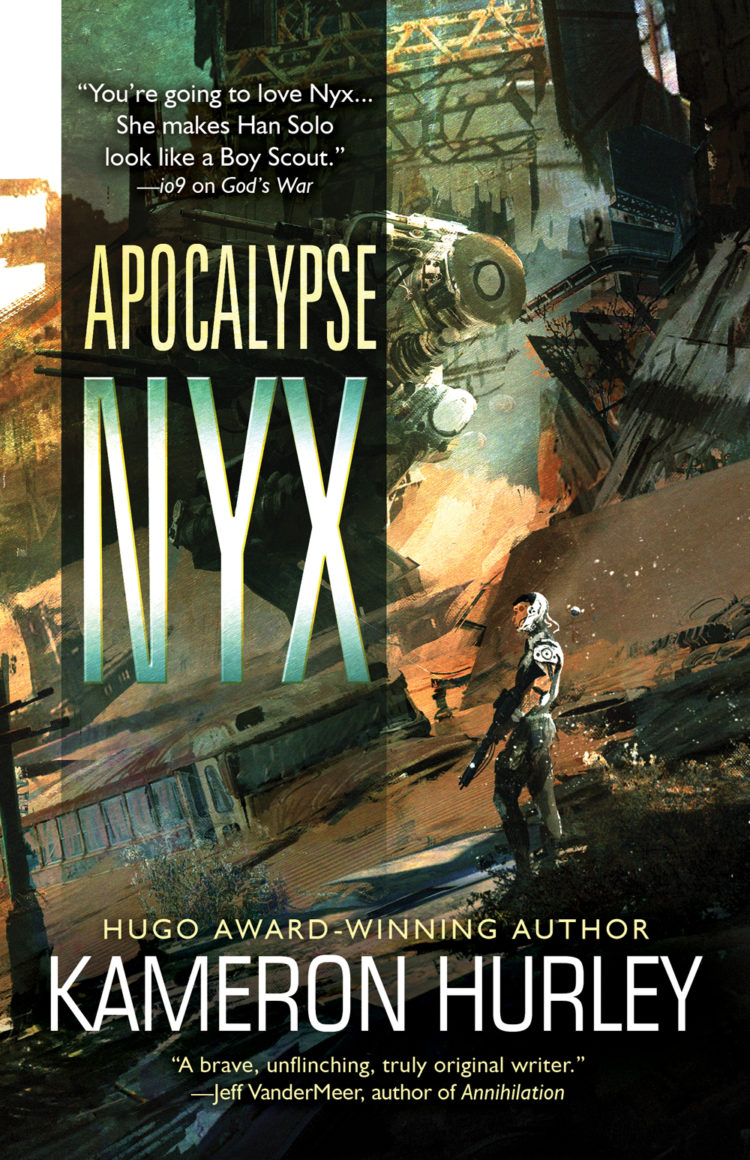Kameron Hurley’s MEET ME IN THE FUTURE is inventive and unique

Via Twitter, Paul Semel gives his brief review of Kameron Hurley’s MEET ME IN THE FUTURE.
This excerpt featuring Kameron Hurley from Becca Anderson’s The Book of Awesome Women Writers ran on the book’s site.
KAMERON HURLEY a resistance movement historian writes future fiction.
Kameron Hurley is a science fiction and fantasy author as well as essayist who uses her writing to explore the future of war and resistance to oppression. Her fiction includes vivid female characters such as her 2018 book APOCALYPSE NYX’s bounty hunter Nyx, who must navigate a dystopian world and deal with challenges like giant bugs and contaminated deserts as she works to survive. Her short fiction was first published in 1998, and she has been writing novels since 2010. She is the author of The Light Brigade (2019) and The Stars are Legion (2017) as well as two trilogies, the Worldbreaker Saga and the award-winning God’s War trilogy.
She was born in the Pacific Northwest and earned a bachelor’s degree in historical studies at the University of Alaska at Fairbanks, going on to receive a master’s degree in the history of South African resistance movements from the University of Kwa-Zulu Natal in Durban, South Africa. Her nonfiction has been published in journals including The Atlantic, The Village Voice, Entertainment Weekly, and Writers Digest, and she writes columns about writing and the publishing industry for Locus Magazine. In 2014, her essay “We Have Always Fought: Challenging the ‘Women, Cattle and Slaves’ Narrative” (2013) won a Hugo Award; that same year, she also won the Hugo for Best Fan Writer. Hurley is also the author of the award-winning essay collection The Geek Feminist Revolution (2017 Locus and BSFA winner, nonfiction); she is an active blogger who posts reflections on topics including how not to burn out living in a “gig economy” and resisting nihilism. Amusingly, she refers to the sphere of her thought and writing as “the Hurleyverse.” She lives in Ohio, where she is cultivating an urban homestead.

Design by Elizabeth Story
For LOCUS, Hurley contributes the essay “Of Men and Monsters.”
While the world undergoes another cycle of necessary upheaval, it has become increasingly certain that I am likely to be spending the next couple of summers just as I have been spending this one: within the same few blocks of my house, gardening, doing dishes, writing books, tearing my hair out over finances, being careful and critical of the news, and trying to be kind to myself in an effort to prolong my own life.
Because living in a slow apocalypse can get to you, with the knowledge that nothing is certain except uncertainty as the world is remade. For all my restlessness, though, I have hope. America’s anger, our community’s anger, gives me hope.
We aren’t dead yet. Not quite yet.
